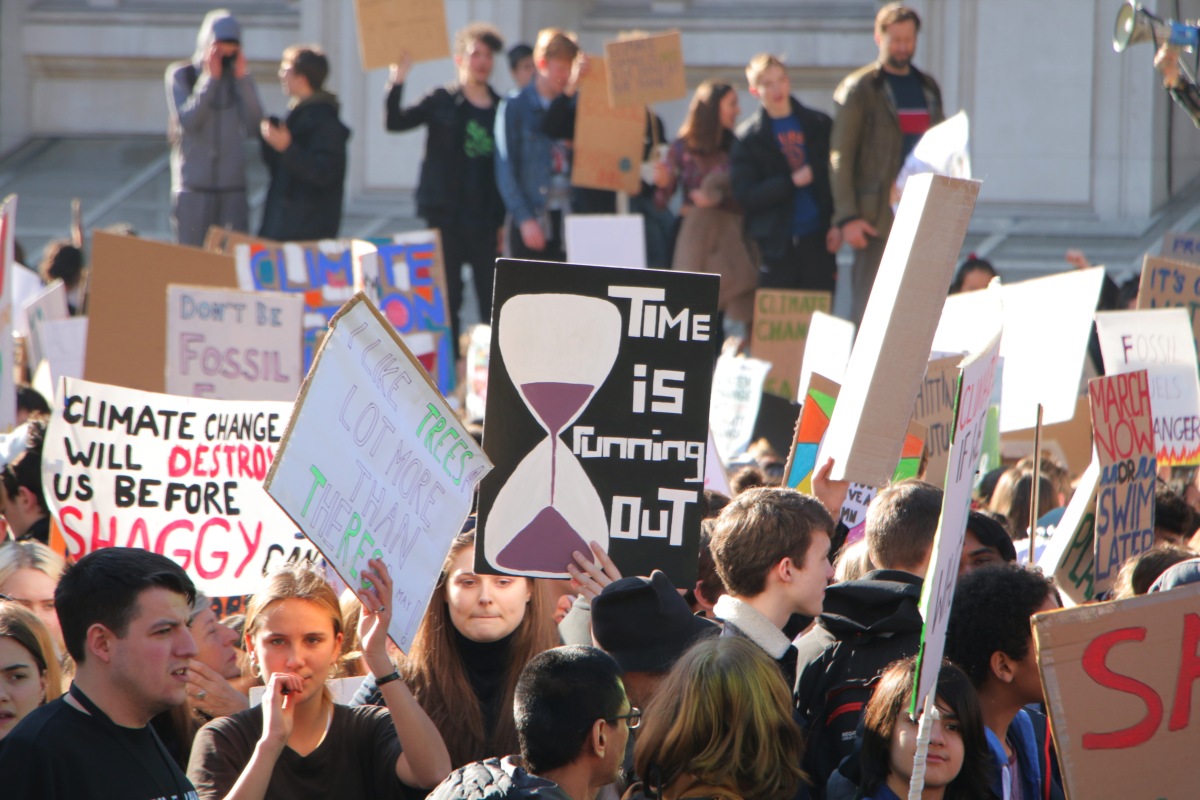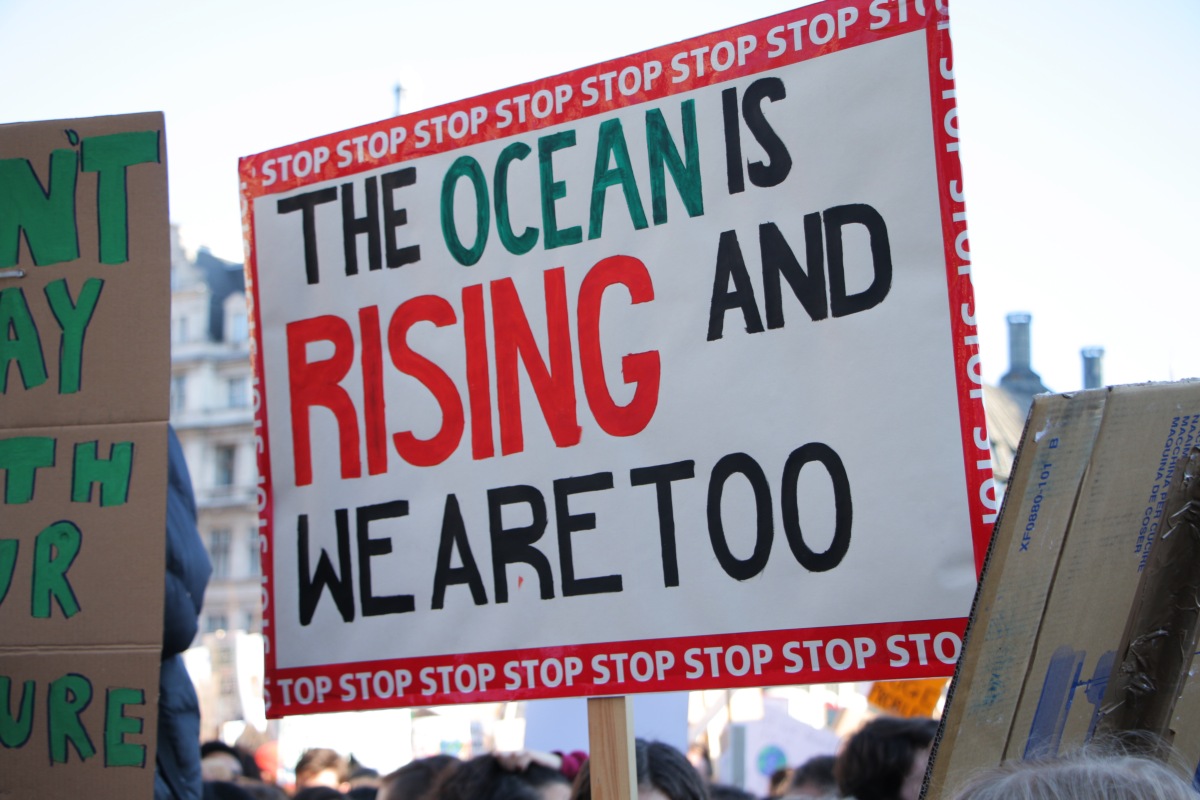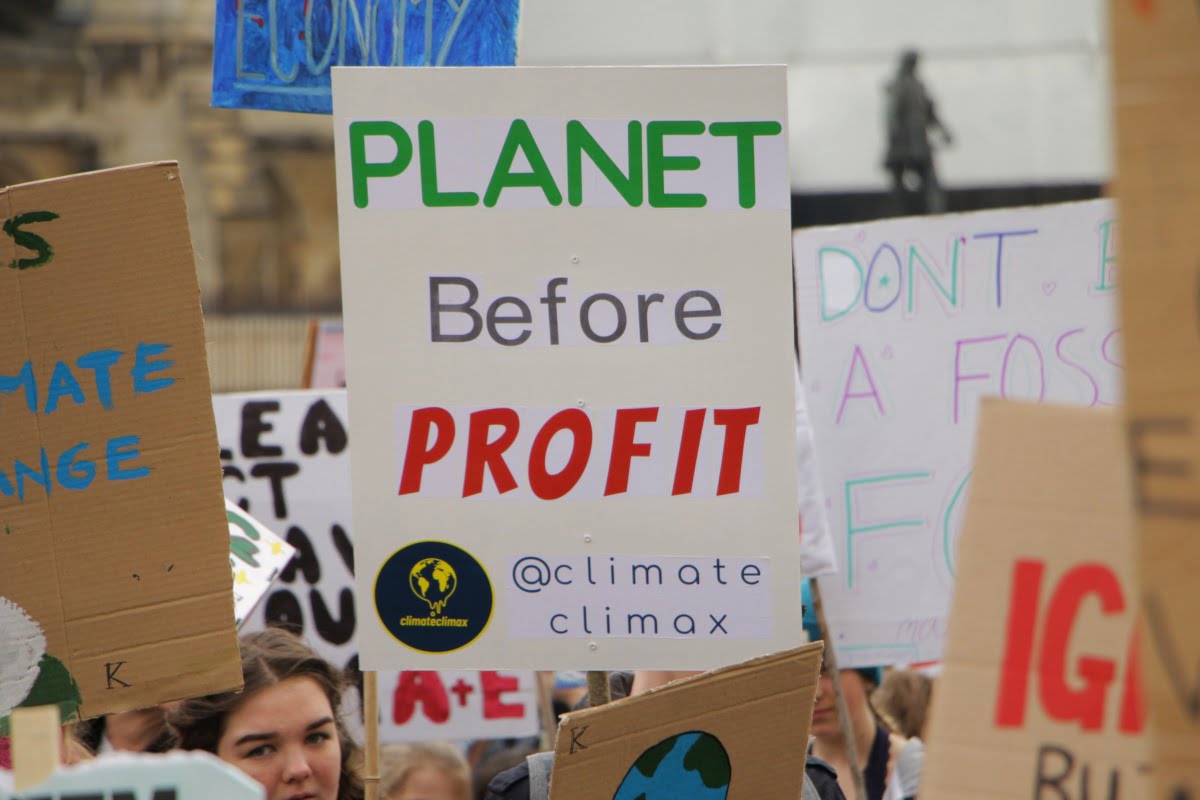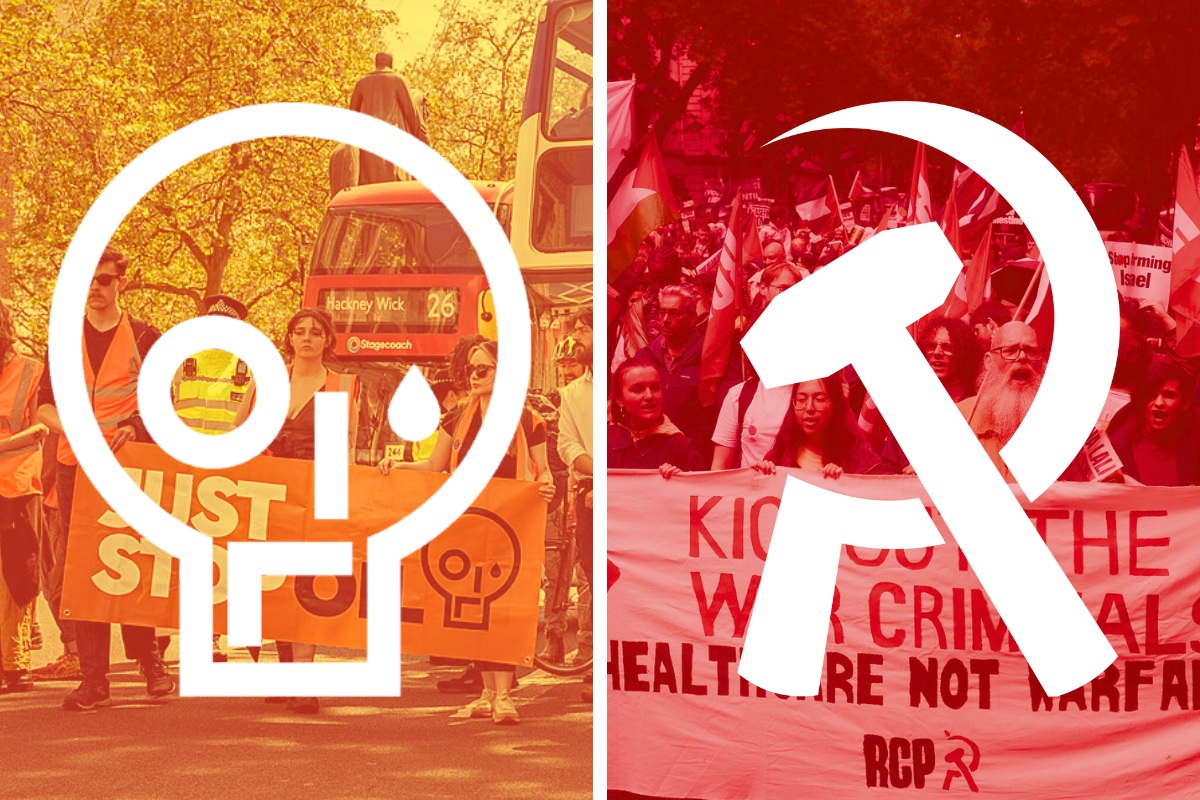Students across the world are taking to the streets again today to demand action against climate change. The movement is drawing anti-capitalist conclusions. We publish here an interview with an activist from this inspiring movement.
Since February, the UK has witnessed something unprecedented in living memory: tens of thousands of school students all around the country have gone on strike, on multiple occasions, in protest against the destruction of the environment.
They are part of a global movement, inspired by the actions of the Swedish school student Greta Thunberg, demanding immediate action to save our planet. Friday 20 September sees the latest international day of action.
We met with one of the #YouthStrike4Climate’s leading activists in London, who told us how the movement organises itself and, importantly, how and why it has decided to become explicitly anti-capitalist.
How did you get involved with the UK Student Climate Network (UKSCN)?
 I joined after some of my school friends told me about it. They thought I’d be interested because they knew I am very political and left-wing. I looked it up and became more interested when I found out about the strike planned for February. After asking to get involved, I was immediately added to five WhatsApp groups!
I joined after some of my school friends told me about it. They thought I’d be interested because they knew I am very political and left-wing. I looked it up and became more interested when I found out about the strike planned for February. After asking to get involved, I was immediately added to five WhatsApp groups!
But it was witnessing the strike in February that changed everything for me. I was really inspired to see so many young people – tens of thousands of us – taking such militant action. This made me more confident in our generation and in the movement itself, and so I volunteered.
What does it mean to be a volunteer with UKSCN?
If you volunteer it means that you put yourself in a particular working group. We use online software, like Slack, to organise this. I volunteered to be part of the trade union working group, to help us establish real links with the labour movement.
I am also in the political outreach working group, and I also organised for entertainment for kids at some of the demos, because some of the children going on them are very young. I do a lot of my work for UKSCN on my way to school, on my phone.
Recently we elected ten delegates from London to coordinate the upcoming strike on 20 September.
How were they elected? Do you have meetings?
We want to have face-to-face meetings but it is really hard to do so as school kids. We completely lack any resources, and all of this is organised purely by school students. So we meet online using a video conferencing app called Zoom. We can have hundreds online in these meetings. That’s how we elected these ten delegates to organise the strike and protest in London.
We also have ongoing ‘meetings’ in a forum where people write their ideas, and others comment. We have online polls everyone can vote in to take decisions.
Because the delegates we elect are coordinators for this upcoming strike, afterwards their roles will be dissolved. At the moment they are also taking more serious political and organisational decisions, such as: Do we want to accept the support from this person or organisation? Do we want to march this way, or that way? Do we want to have these demands, or different ones? If any decisions are particularly controversial they are put to a vote amongst broader groups of volunteers online.
To what extent does UKSCN have a political programme and, if so, how was this arrived at?
 I am really excited and proud of the fact that more recently we have adopted a clear political stance (though we’re non party-political) – which is that capitalism is flawed and is ultimately the reason for the climate crisis.
I am really excited and proud of the fact that more recently we have adopted a clear political stance (though we’re non party-political) – which is that capitalism is flawed and is ultimately the reason for the climate crisis.
We officially stand for system change instead of individual change. Personal actions, like not using plastic straws, cannot address the causes of climate change and are far too little.
We also officially advocate for a Green New Deal, because a massive programme of investment in public services and renewable energy is the only way to halt climate change. We also incorporated into our programme justice for migrant workers and workers in general, because they are, and will be, affected by far the most by climate change.
How did you come to this conclusion?
Through a lot of discussion! From the beginning there have actually been some Conservatives involved, as well as Labour Party members and Marxists and anarchists. Admittedly there always has been a lot more from the left. But through discussion even the Tories are changing their opinions.
Basically we started discussing why climate change is happening. This is what everyone wants to know. We have about 500-600 volunteers involved in these constantly ongoing discussions. It’s a big discussion.
The thing is, it’s hard to deny that capitalism is to blame for climate change. It’s an unavoidable conclusion – it’s the economic system that we live under and it’s the one that has produced this situation. The system’s greed and shortsightedness are clearly to blame.
So most of us came to the conclusion that capitalism is to blame. The Tories in the group were undermined by the general disregard they have for the environment. For example, Zac Goldsmith has just been made the Minister for Environment and he is appalling on this question.
How do you think the movement can go forward?
We have inspired the trade unions to be more conscious of the question of climate change. In this way we are having an impact. We are the loudest and most conscious layer of society on climate change and we have inspired older people and trade unionists with our militancy.
We support the abolition of all the anti-trade union laws. This is important anyway, but it is also important for us – at the moment it is illegal for the unions to come out with us when we strike, because political strikes are illegal. If Labour ends that, it will really strengthen us. The movement would become far broader and more powerful.
Last week, I spoke at Lambeth Trades Council about the climate strikes. The trade unionists of course know about the climate strikes and are supportive. But they were also completely unaware of UKSCN itself and how we organise. Generally, all adults are unaware.
They were really inspired by what I told them. That was incredible for me – I was speaking to experienced trade unionists who did things like fight in the miners strike. If we can inspire them into militant action that is amazing. Whilst we can have that influence, they have the economic power. If we can give them that confidence, there’s no stopping our movement!
How can other students get involved?
Go to ukscn.org. There you can volunteer and you can get sign-up sheets to get other school students involved. There are also guides on how to set up a strike at your school. At the moment, we have 200 confirmed locations in the UK, and school students in 160 countries are involved.





